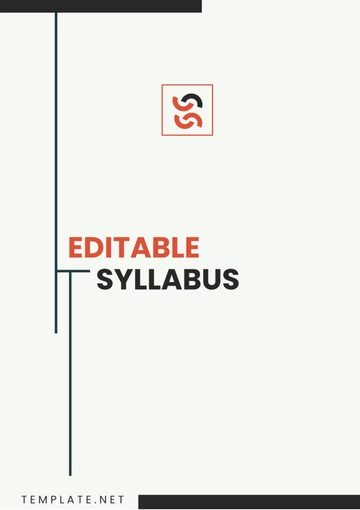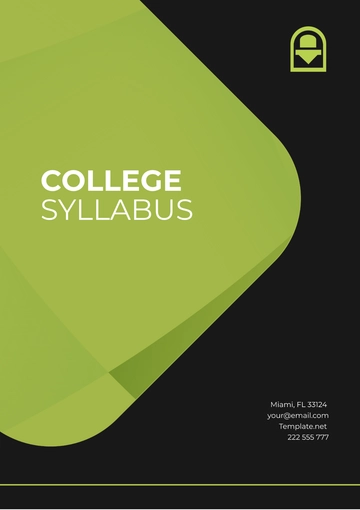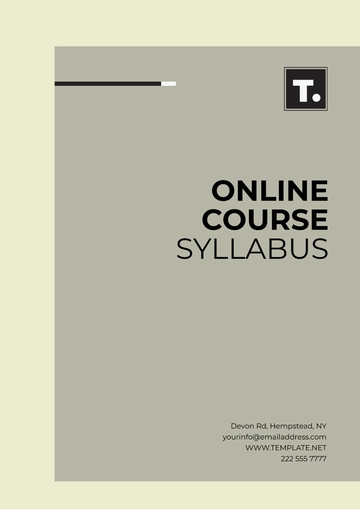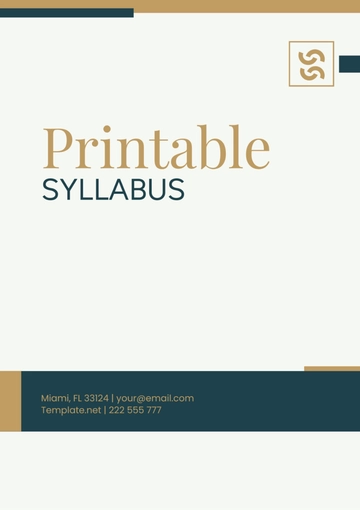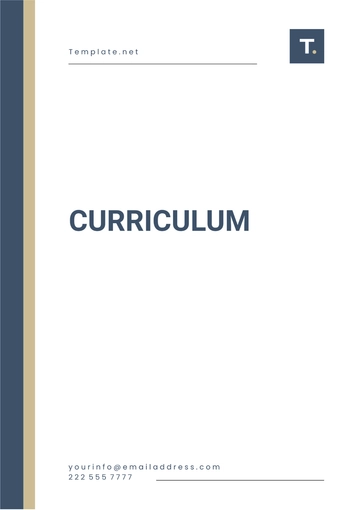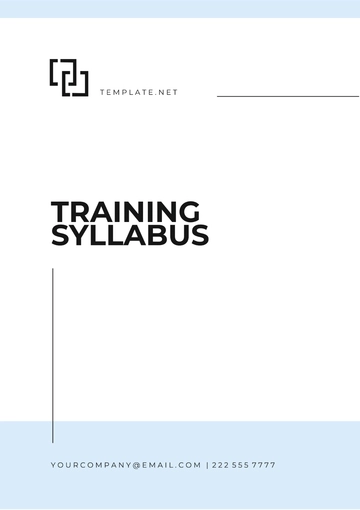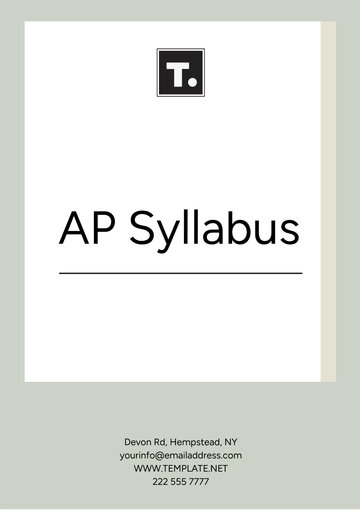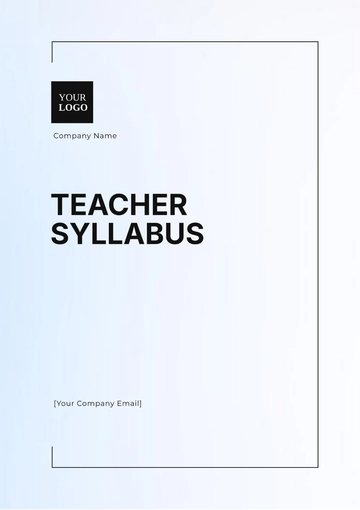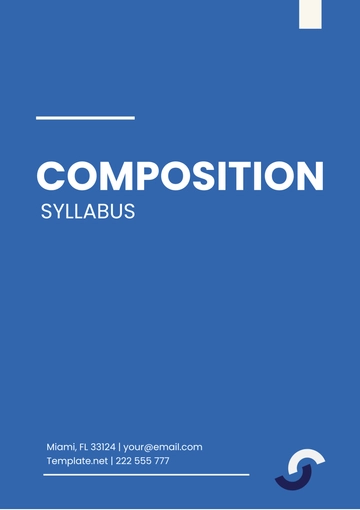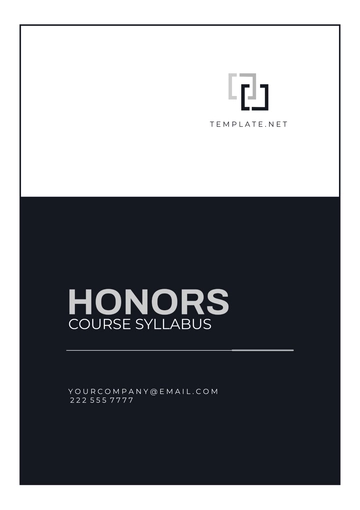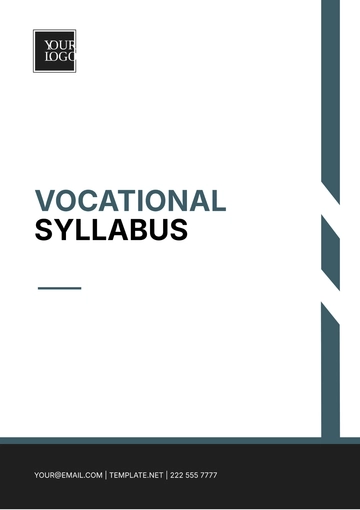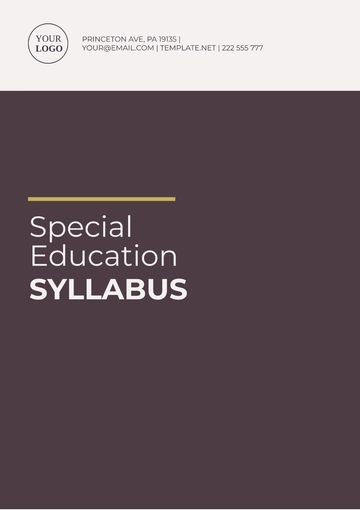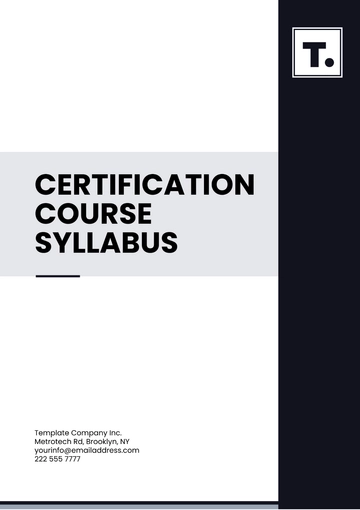Free Conservation Biology Syllabus
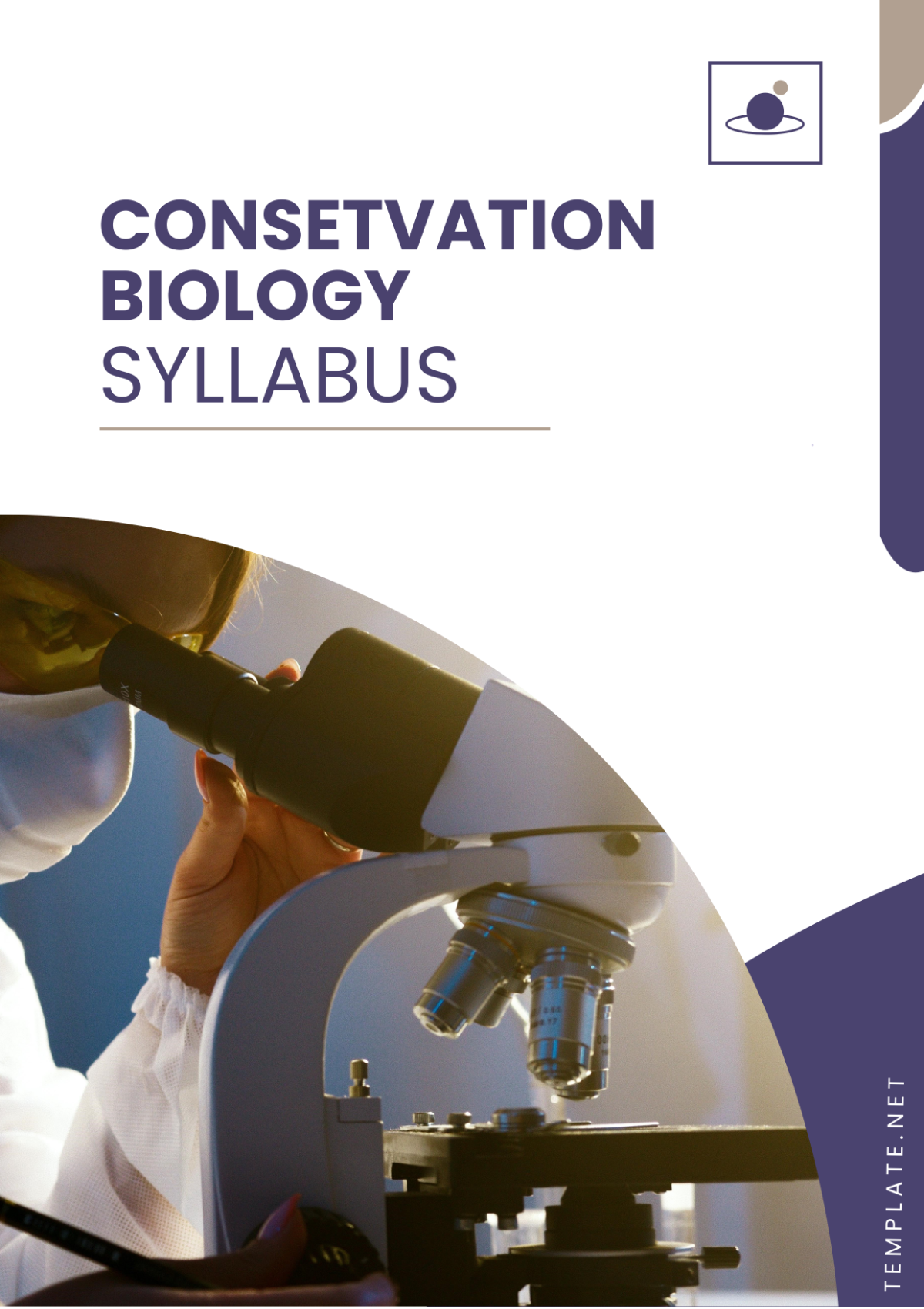
Conservation Biology Syllabus Course
Course Title: | [COURSE TITLE] |
Credits: | [CREDITS] |
Instructor: | [INSTRUCTOR] |
Schedule: | [SCHEDULE] |
Location: | [LOCATION] |
Description: | [DESCRIPTION] |
Assessments: | [ASSESSMENTS] |
Grading: | [GRADING] |
Office Hours: | [OFFICE HOURS] |
1. Course Description
In this course, students will delve into the science and practice of conservation biology, developing a foundational understanding of key principles, exploring various applied methods, and examining real-world conservation applications. Engaging lectures, readings, and case studies will underscore the interconnected nature of biological conservation and human societies.
2. Instructor Information
Instructor: [YOUR NAME]
Contact: [YOUR EMAIL]
Organization: [YOUR COMPANY NAME]
3. Learning Objectives
Understand and explain the key principles of conservation biology.
Describe and apply the various methods used in conservation biology research.
Analyze and critically evaluate case studies in conservation biology.
Engage in effective environmental problem-solving and decision-making processes.
Communicate conservation biology principles and concepts effectively to diverse audiences.
4. Course Schedule
Week | Topics | Reading Assignment |
|---|---|---|
1 | Introduction to Ecology |
|
| ||
2 | Biodiversity Conservation |
|
| ||
3 | Threats to Ecosystems |
|
|
5. Required Reading and Materials
Groom, M., Meffe, K., & Carroll, C. (2020). Principles of Conservation Biology, 4th Edition.
Key scientific journal articles (to be provided)
A guide to local flora and fauna
Access to e-learning platform for quizzes and assignments
Notebook for in-class exercise and field notes
6. Assignments and Assessments
Lecture Quizzes: Quizzes will be given at the end of each lecture to assess understanding of the presented concepts.
Reading Reports: Students are expected to submit brief summaries of assigned readings and reflect on the applications of principles discussed.
Field Tasks: These tasks will allow students to apply classroom knowledge in real-world settings.
Group Project: Teams will be tasked with conducting their own small-scale conservation project and presenting the results.
Final Exam: All course materials will be included in a comprehensive final exam.
7. Course Policy
Attendance: Completion of all lectures and field work is mandatory.
Academic Integrity: Academic dishonesty will result in immediate course failure. All work submitted must be the student’s own.
Group Work: Participation in group work is expected; collaboration and cooperation are required for success.
Deadlines: All coursework must be submitted on time. Late submissions will incur a penalty.
Respect: Students should maintain a respectful and professional manner in class and during fieldwork.
8. Grading Policy
Grading Criteria | Weight |
|---|---|
Attendance | 10% |
Lecture Quizzes | 20% |
Reading Reports | 20% |
Field Tasks | 20% |
Group Project | 20% |
Final Exam | 10% |
9. Disclaimer
The syllabus that has been presented is not fixed and can undergo changes which will solely depend on the instructor's discretion. If any amendments are made, they will be promptly and clearly communicated to all the students.
- 100% Customizable, free editor
- Access 1 Million+ Templates, photo’s & graphics
- Download or share as a template
- Click and replace photos, graphics, text, backgrounds
- Resize, crop, AI write & more
- Access advanced editor
Introducing the Conservation Biology Syllabus Template from Template.net. Crafted for educators passionate about ecological preservation. Fully editable and customizable in our Ai Editor Tool. Tailor lessons seamlessly, aligning with curriculum needs. Empower students with comprehensive resources. Elevate your teaching experience effortlessly. Unlock potential with this dynamic template.

